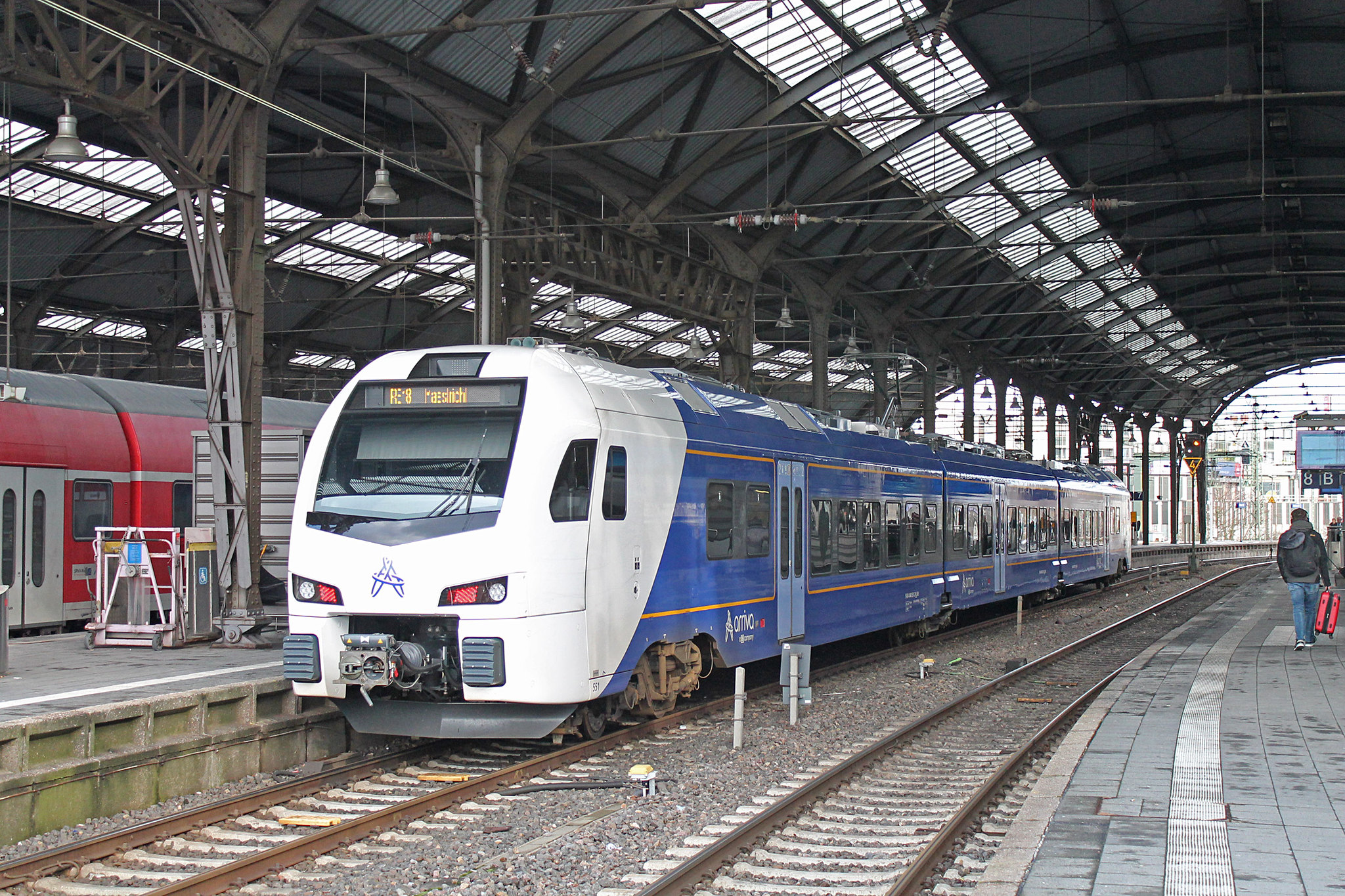Three-country train service begins after years of setbacks

The first regular train service linking cities in Germany, the Netherlands and Belgium has gone into service after years of delays and setbacks.
The Drielandentrein runs once an hour from Aachen to Liège via Maastricht, crossing two borders and spanning three linguistic regions along its 78-kilometre route.
The 90-minute service, run by Arriva, was first proposed more than a decade ago to meet the growing demand from students and commuters living across the border, but was held up by technical and administrative issues.
“We have worked hard with the provincial deputies and ministers on the German and Belgian side to make this possible,” Arriva’s regional director Michiel Cusell told transport news website Treinreiziger.nl.
“It is important not just for public transport, but as a symbol of international co-operation.”
Trains have been running between Aachen and Maastricht since 2019, but were unable to connect to Liège because they were not equipped with the European automatic train control system ETCS, which is required in Belgium.
Fyra debacle
Talks to resolve the problems were sidelined during the row between the Netherlands and Belgium over the high-speed Fyra trains, which were taken out of service in 2013 after than less than a year because of reliability issues.
Provincial governments and operators also had to deal with different arrangements of overhead power lines and safety systems in the three countries.
Some teething problems still remain, such as the ticket purchasing arrangements. Dutch travellers can use their OV-chipcard to travel across the border to Germany, but not to Belgium.
Arriva told Treinreiziger.nl it was working hard to fix the problem, initially by installing a Dutch check-in point at the border station of Eijsden. It hopes to be able to extend the network to Visé and Liège, but would not give a timescale.
Thank you for donating to DutchNews.nl.
We could not provide the Dutch News service, and keep it free of charge, without the generous support of our readers. Your donations allow us to report on issues you tell us matter, and provide you with a summary of the most important Dutch news each day.
Make a donation